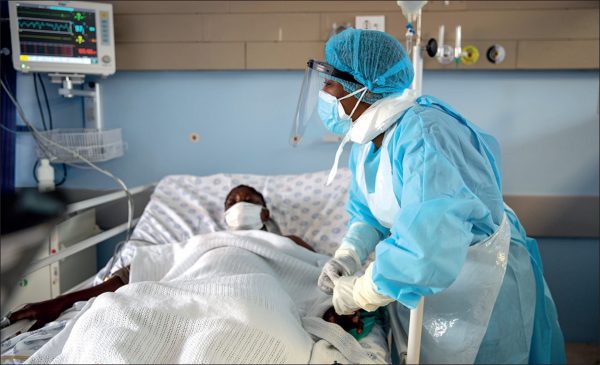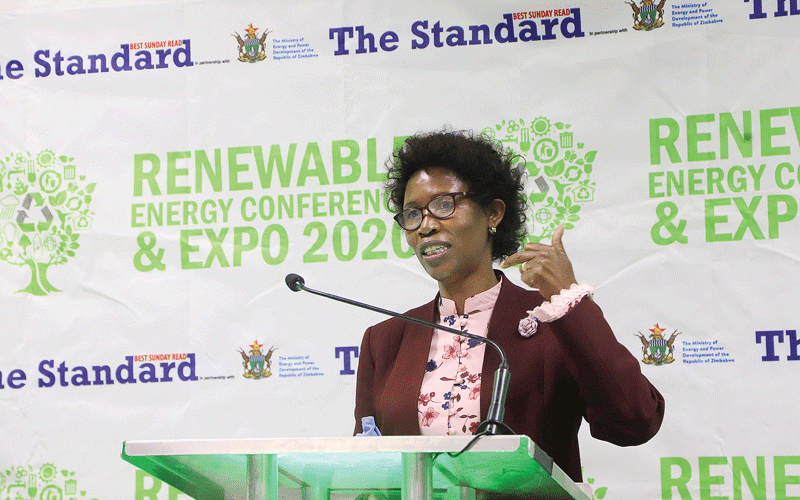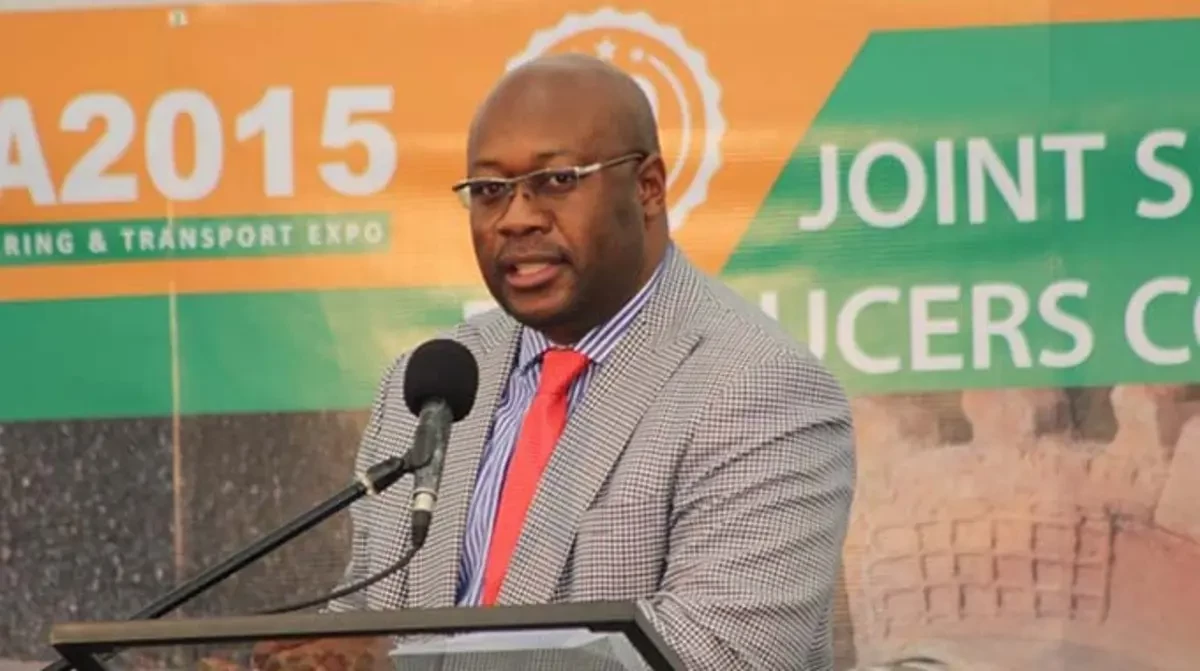
BY MOSES MUGUGUNYEKI/PHYLLIS MBANJE
FORTY-YEAR-OLD Tichaona Zichomu fell severely ill after catching COVID-19 during the third wave of the pandemic which registered a high number of deaths in July; and during the worst days up to more than 100 deaths daily.
Fortunately for Zichomu, he survived the deadly respiratory pandemic after getting treated at a local private clinic.
Subsequently after treatment was administered, Zichomu tested negative to the virus, but he still experiences the symptoms of long-COVID-19, which are long term effects even on survivors.
Specialist doctors that have been studying the corona virus and its after effects on patients say that after recovery, patients might have to endure long-COVID-19 or the post-COVID-19 syndrome.
Guidance for UK health workers describes long COVID-19 as a situation where the recovered patient would continue to experience symptoms of the virus for more than 12 weeks after getting the infection.
These symptoms could be mild or severe.
“When I got ill in August, my biggest challenge was breathing. I ended up on a life support system,” Zichomu, a businessman, narrated.
- Chamisa under fire over US$120K donation
- Mavhunga puts DeMbare into Chibuku quarterfinals
- Pension funds bet on Cabora Bassa oilfields
- Councils defy govt fire tender directive
Keep Reading
“Despite being discharged and testing negative for COVID-19, I have been in and out of the hospital. At one time I was diagnosed with blood clots that are often referred to as pulmonary embolism in medical jargon.
“My doctors said the blood clots were triggered by the lung infection as a result of the coronavirus. They told me it’s something they can deal with, and they prescribed blood-thinning medications.”
Millions of other people that have recovered from COVID-19 are still battling the post-coronavirus syndrome.
Other symptoms include extreme tiredness, shortness of breath, heart palpitations, chest pain or tightness, joint pains, especially the ankles and knees, problems with memory and concentration (brain fog), changes to taste and smell as well as joint pains, among others.
A study carried out by the University College London (UCL), identified 200 symptoms affecting 10 organ systems.
These include hallucinations, insomnia, hearing and vision changes, short-term memory loss and speech and language issues. Others have reported gastro-intestinal and bladder problems, changes to menstruation periods and skin conditions.
Faith Selemani, who had a mild version of COVID-19 said she continued to experience symptoms after her initial recovery.
“I had a mild attack of COVID-19 and managed the disease while at home. I quickly recovered and tested negative, but for close to two months, I have been struggling with chest pains and tightness on the chest,” Selemani said.
She said after she got inoculated against the respiratory virus, the post-COVID-19 conditions disappeared.
“I am the true testimony of someone who had to contain a long COVID-19. It is there, but most people are not aware that when you recover from the original infection, chances are high that you can endure post-COVID symptoms.”
Both Selemani and Zichomu confirmed that at some point, they had to be admitted at health facilities to treat and manage post-COVID-19 conditions.
Public health expert and medical doctor Johannes Marisa confirmed that there were incidents where he managed and treated people with post COVID-19 conditions. Marisa said the conditions could go for longer than a month.
“Coronavirus can present what is termed long COVID-19, a condition where symptoms can go beyond one month. The virus can damage the lungs, heart and brain.
“There is systemic damage that can occur to the body and it should be noted that there are many patients who actually die many weeks after the initial infection.
“Some of the conditions to be worried about include thromboembolism, which is the formation of clots in the system. It is a cause for concern because it blocks many blood vessels, chief being the pulmonary circulation,” Marisa said.
“Other parts affected by blood clots include the liver, legs, kidneys and the virus weaken blood vessels and causes them to leak, which contributes to potentially long-lasting problems with the liver and kidneys.”
He had also come across a number of patients with post COVID-19 conditions, of which some had brain, lung and the heart affected by the virus, while many, including children developed multi-system inflammatory syndrome, a condition where some organs and tissues become severely inflamed.
Red Cross clinic practitioner-in-charge Joel Tapi said long COVID-19 is an elephant in the room that needs to be tackled.
“It’s something that is happening. People are experiencing these post COVID-19 conditions, and there is a need to come up with specific health facilities to treat them,” Tapi said.
“There is also need to research on the post-COVID-19 conditions because the symptoms are so many. However, I believe if people get vaccinated, some of these things could be done away with.”
Tapi said the Zimbabwe Red Cross Society, through the Red Cross Clinic in Harare was offering free vaccines, adding that there were plans to spread the exercise across the country.
A recent UK study stated that roughly half of people with long COVID-19 reported an improvement in their symptoms after getting the jab against the virus.
Community Working Group on Health executive director Itai Rusike said most people were still in the dark with regards to the possible effects of long COVID-19.
“Long COVID-19 entails symptoms that continue for weeks to months after the initial illness. It is common, but is still poorly monitored in the country.
“While recognition in higher income countries has grown due to advocacy by people affected by the post COVID19 conditions, the learning and evidence on its causes and consequences are still advancing.”
Rusike said early detection, recognition and diagnosis were essential for effective management of long COVID-19. He said primary level care givers must be supported with medical physiotherapy, psychology and other skills in order to assist patients with post-COVID symptoms.
“While there is pilot work and training on long-COVID in Zimbabwe, screening and care services for post-COVID-19 are still limited. Socio-economic inequalities also apply to COVID-19 as it affects employment, incomes and domestic life. Poor access to appropriate care also leads to long term socio-economic consequences in patients.”
Health analysts say that the effects of long-COVID-19 can be lessened through provision of advanced treatment and improvement of health facilities in the country.
Evidence based research has also indicated that 10% to 30% of the individuals that have suffered from acute COVID-19 would suffer from long-COVID-19, thus the need for availability of treatment, and vaccinating as many people as possible against the pandemic.
With Zimbabwe’s dilapidated health infrastructure, it could be problematic as both public and private institutions were overwhelmed at the height of the third wave of COVID-19.
Healthcare continues to be out of reach of many in the country, with less than 10% of the population on medical insurance.
The MCAZ says drugs like ivermectin are still under operational research, but Zimbabwe and other African countries can benefit from other treatment options available globally.
Last week the World Health Organisation (WHO) recommended a two-drug treatment cocktail, casirivimab and imdevimab for COVID-19 patients, which has demonstrated in clinical trials that patients that take it have decreased risk of hospitalization for non-severe cases. This is the very first drug recommended by WHO to reduce the risk of contracting the virus.
However, the drug is costly, with US-based manufacturer and patent holder, Regeneron selling the cocktail at a high price of US$820 in India, Euro 2000 in Germany and $2,100 in the US. The company has also filed patent applications in at least 11 low-and middle-income countries. Chances for African countries of accessing these drugs are low, prompting organisations like the Medicins Sans Frontier (MSF) to challenge Regeneron to make the drugs affordable. “It is simply not fair that people living in low-and middle-income countries cannot access new COVID-19 treatments that can decrease the risk of death because of pharmaceutical companies’ monopolies and wishes for high returns,” Elin Hoffmann Dahl, the MSF Access Campaign infectious disease advisor said.
Casirivimab and Imdevimab were only conditionally recommended for COVID-19 last Thursday, but Regeneron has opened up applications for patents. The company has been urged to put people’s lives first ahead of profits.
African countries have been encouraged to join hands with MSF and make noise to ensure companies like Regeneron do not disadvantage Africa.
This article first appeared in the Weekly Digest, an AMH Digital publication










